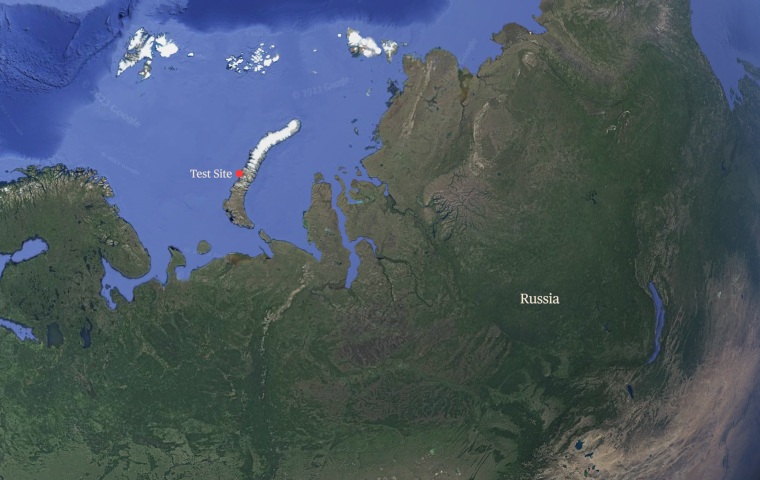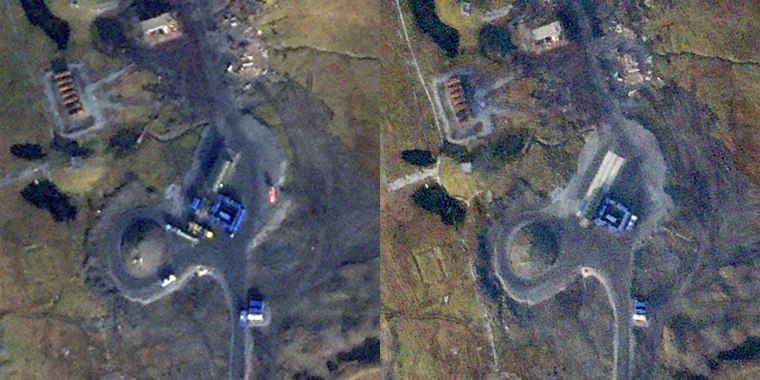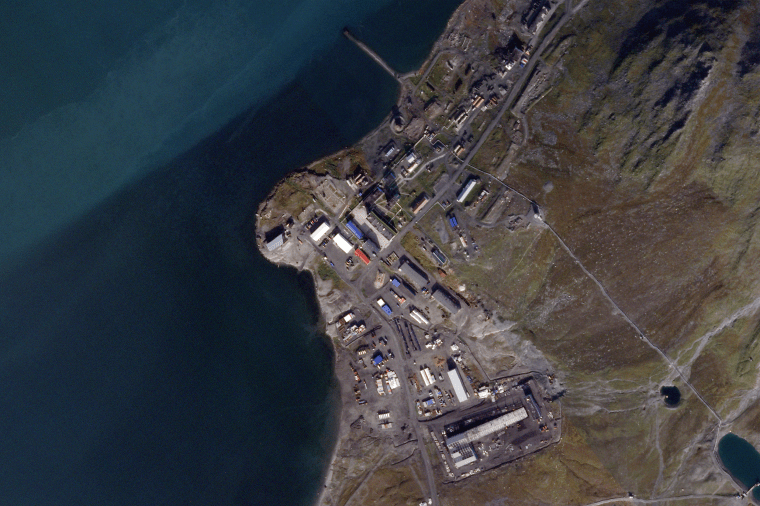President Vladimir Putin has said Russia successfully completed the testing of a new nuclear-powered strategic missile and could revoke its ratification of a nuclear test ban treaty, raising fears that Moscow could resume nuclear testing for the first time in decades.
The Russian leader’s renewed nuclear talk on Thursday came against the backdrop of escalating rhetoric among Kremlin hawks, with a prominent propagandist drawing criticism this week for claims Russia should detonate a nuclear weapon over Siberia to send a message to the West.
In his hours-long remarks at a forum in the southern city of Sochi, Putin said Moscow has almost completed work on “modern types of strategic weapons,” which he first announced in 2018.
“The last successful test of the Burevestnik, a global-range cruise missile with a nuclear propulsion system, was carried out,” Putin said.
The question now, Putin said, was about resolving some “purely administrative and bureaucratic” procedures in order to move on to mass production of these weapons and putting them on combat duty. “We will do this soon,” he added.
While Putin’s speech may stoke renewed concern in the West, analysts were not convinced there was too much to be worried about from the new weapon itself.
“This is a stupid weapon system, designed by stupid people for operational reasons that are not tremendously useful,” William Alberque, the director of strategy, technology and arms control at the International Institute for Strategic Studies, told NBC News.

‘A hammer blow’ to global bans
Since the start of his war in Ukraine, the Russian leader has repeatedly threatened to unleash the country’s powerful nuclear arsenal should its sovereignty or territorial integrity be threatened.
It’s part of the country’s so-called nuclear doctrine, which Putin said Thursday there was no reason to update, when asked if the threshold for employing nuclear weapons should be lowered to restrain the West. “No person in his right mind and clear memory” would think of using nuclear weapons against Russia, Putin said.
He added that he was not ready to say whether nuclear testing is actually needed, but threatened to revoke Moscow’s ratification of the Comprehensive Nuclear Test Ban Treaty, which bans all nuclear explosions, whether for military or peaceful purposes. It would mirror Washington signing but not ratifying the treaty, Putin added.
Speaker of the Russian State Duma, Vyacheslav Volodin, wasted no time in backing the Russian leader, writing on the Telegram messaging app early Friday that lawmakers will look into it during the lower house of Parliament's next session.
Kremlin spokesman Dmitry Peskov clarified later on Friday that revoking the ratification would not mean that Russia plans to conduct nuclear tests.
It comes just months after Russia suspended its involvement in the last remaining arms control treaty with the U.S., which limits nuclear stocks.
Putin did not specify when or where the alleged testing of the Burevestnik missile took place.
But the New York Times reported earlier this week, citing satellite imagery and aviation data, that Russia may be preparing to test an experimental nuclear-powered cruise missile, or may have recently tested one.


Little is known about the Burevestnik, which translates as “Storm Petrel” and was code-named Skyfall by NATO.
On Russia's defense ministry website, Burevestnik is described as a nuclear-powered cruise missile with an “unlimited range.”
Its nuclear propulsion could allow it to cover a longer distance and stay airborne for a much longer time than other missiles, but may also make it more unreliable, according to experts.
Animation shared in 2018 shows the missile flying around the planet, bypassing missile defense systems and eventually reaching the Pacific Coast of North America. But there have been doubts about how quickly Russia could develop a major new weapon of this scale and how easy it would be to handle.
A suspected failed test of Burevestnik in 2019 killed five scientists and caused a radiation spike in a nearby city.
Technologically, the weapon is not that much of a challenge, said Alberque, but safely deploying it is much more difficult. “There is a reason the U.S. abandoned this technology in the Cold War. It’s just a bad idea,” he added.
The failed test in 2019 illustrates the dangers of this technology, he added.
Talking about its testing may primarily be an attempt to intimidate the West and force concessions on Ukraine, but Moscow withdrawing from the nuclear test ban treaty would be a huge deal, Alberque said. Russia is part of the global monitoring system that helps detect nuclear explosions and losing Russian sensors would deal “a hammer blow” to that ability, he added.
According to the United Nations, the Soviet Union’s last nuclear test took place in late 1990, so the resumption of nuclear testing by Putin’s Russia would be a major development that could further escalate global tensions.
Putin’s rhetoric follows months of nuclear threats from some of Russia’s most ardent war supporters.
Since the early months of the invasion, pundits on Russian state TV have called for nuclear strikes on Western capitals in response to their military aid to Ukraine. Former President Dmitry Medvedev, now the deputy secretary of Russia’s Security Council, has also promised to unleash Russia’s nuclear arsenal on multiple occasions.
But it appears one of the Kremlin’s full-time nuclear war-mongers went a step too far this week.
Margarita Simonyan, the editor-in-chief of Russia’s English-language RT network, suggested Sunday that there is no need for nuclear strikes on Washington when a thermonuclear explosion over Russian territory, like Siberia in Russia’s far east, would knock out all radioelectronics and satellite systems, in a major blow to the West. “Nothing so terrible would happen” to the area or locals, she said, adding that it’s one of the “most humane” options she sees available.
The comment sparked outrage from some Russian officials, including those in Siberia.
The Kremlin has tried to distance itself from Simonyan’s comments, saying she doesn’t hold any government positions so her words don’t always reflect its official position.
Simonyan appeared to backtrack on her words after the wave of outrage, saying she never actually suggested “any such heresy.”
